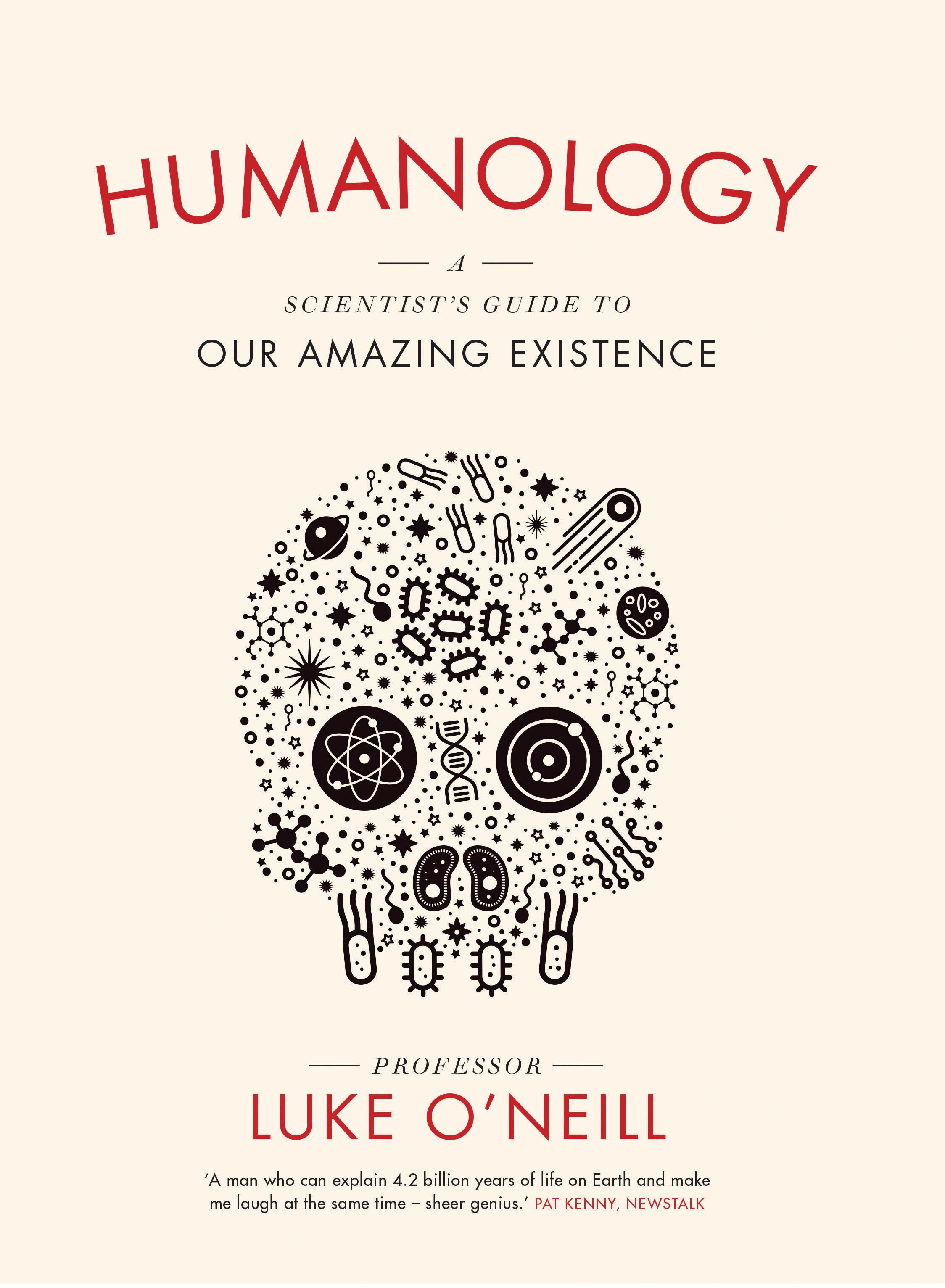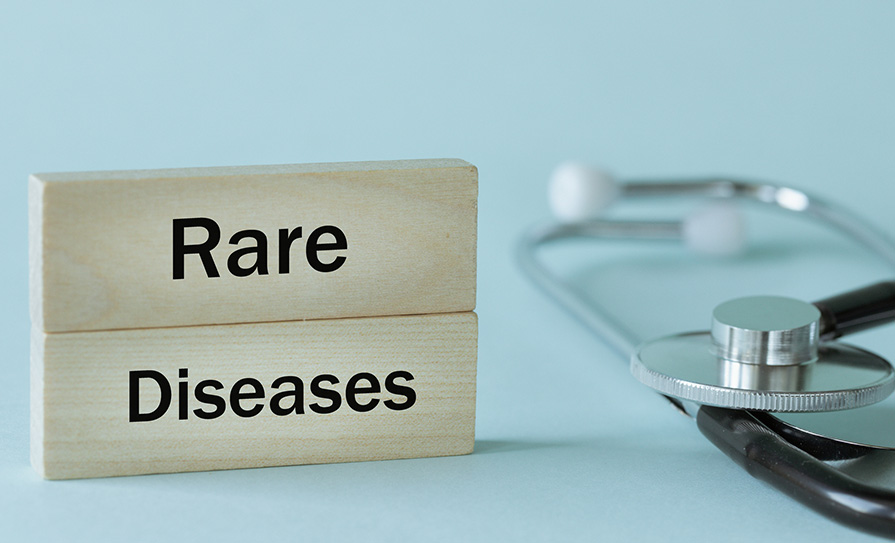Immunologist Prof Luke O’Neill’s new book Humanology sets out to explain much of humankind’s ‘amazing existence’ through the scientific lens. David Lynch speaks to the author
Prof Luke O’Neill is hopeful about the future of medicine and science and his new book Humanology – A Scientist’s Guide to Our Amazing Existence (Gill Books) reflects this optimism.
“When it comes to medicine, it is the best time ever,” the Professor of Biochemistry in the School of Biochemistry and Immunology at Trinity College Dublin told the Medical Independent.
“That’s because there are all these fantastic treatments about to emerge; as my book describes there have been huge advances in medicine over the past 20 years.
“The future has to be great. There will be new treatments for diseases that are currently very difficult to treat. I talk about Alzheimer’s and Parkinson’s as two good examples. We are all very confident that we will crack those. We have seen big breakthroughs in cancer. “What happens is, and I have been in this game for over 30 years, that lots of that basic research in bio-medicine is now beginning to yield new therapies.”
Known to many people through his weekly slot on Newstalk’s Pat Kenny Show where he talks about science and medicine, Prof O’Neill is also a leading immunologist.
Although he is hopeful about scientific progress, he knows there are challenges.
“Now, of course, you begin to wonder who will pay for them [new treatments]. Because that is a big question, because they will be expensive,” he said.
“Then you enter into questions of social equity. It becomes political in a way, as you know, but that’s not for the scientist whose job is to discover new things that might be useful for the development of new medicines. So we are doing our part.
“My hope is that everyone will get access to new medicines. That’s controversial because that is not the case. That’s a concern. But the fantastic science that is going on gives us great hope for new treatments in the future.”
Prof O’Neill’s new book takes readers across centuries and galaxies, explaining how it all began, how it all will end and everything in between.
But is this a book that will interest doctors and other healthcare professionals?
Medicine
“Oh yes. I hope so,” said Prof O’Neill laughing.
“There is a chapter on new medicine for instance, where I discuss the future of medicine as a topic. But it is very biologically-based, because it is to do with the science of being a human. From aging to death, sleep, all those areas are covered. So I think it would be very relevant to a medical audience.”
Prof O’Neill said that his aim is “to really convey the wonder of what it is to be a human being, in some ways”.
No easy or small task of course, but he starts “with the origins of life, then we get to humans and then I discuss what makes us interesting as a species and then I go through maybe 12 topics around being human. Everything from the science of attraction; I do fertilisation, the big discoveries about how the sperm and egg get it on, as it were, and I cover gender, religion all from a scientific basis.
“And then towards the end I get to diseases. I talk about the ageing process, death and extinction.
“The last chapter is sort of a positive view on the future. Because science is beneficial to humanity – and that can be largely medical. I go on about the antibiotics and vaccines and all that kind of thing.”
Asked what his own favourite chapter is, Prof O’Neill pointed to the one that focuses on the Large Hadron Collider and the International Space Station, “two great examples of humans cooperating for the greater good”.
“The net impact of science is to help humanity really, through all kinds of things include new medicine and treatment of disease.”
Specialisation
As an immunologist, Prof O’Neill is a noted specialist in his area. However, with a book like this and his many radio appearances he also displays his generalist interest. The generalisation and specialisation divide sometimes creates tension when it comes up in medicine. What does Prof O’Neill think of the relationship?
“Yeah, it’s an interesting question,” he said.
“I began doing this on the radio, the book is based on my slot on Pat Kenny. I’d say half of those are to do with medical research, which I am an expert on somewhat. And the other half is stuff I’m interested in.
“Anybody can have an opinion on any aspect of science really. Clearly a specialist might say ‘Why is he banging on about planets and the solar system when he is not an astronomer?’, you know. I say ‘look, it’s science and I am first and foremost a scientist.’”
“So I don’t see any problem discussing those things. I think the trick of course is making it understandable. My big passion is science communication. I think we are all scientists at the bottom line. Clearly if you want to get into real detail you want to bring in an expert. But this book is not an expert opinion on all these different things, it’s a scientific look.
“Educating everyone about science is a fundamental task for society.
“It’s a key thing. Every scientist and physician has an obligation to communicate with the general public,” Prof O’Neill said.
“We are slightly more expert than them, but they have a right to know because they are tax-payers and often fund research. Also it’s partly because it’s [science] exciting and fun, because there is a shocking lack of knowledge in the general public about these things in truth.
“It worries me. You want to make your general public scientifically literate and that’s because there are big pressures out there and we are living in a democratic nation so people should be informed about these things. Things like climate change, or in medicine new possible therapies, such as gene therapy.”
However, in other ways Prof O’Neill is not too despondent about the general level of science literacy in Ireland.
“The education system is good in Ireland,” he said. “I think we are better than some other countries. People do science up to the age of 14 or 15, which is great. That makes them informed.”
And this informed citizenry is vital, he argues, “because big pressures are coming down the tracks as science advances, people should have an opinion on these things.”
Art and science
Prof O’Neill is also lead singer of his band, The Metabolix, and is keen to emphasise the commonalties between art and science.
“Scientists and artists are similar really,” he argued.
“An artist may decide to paint a picture, that person is trying to explain existence in a way, and that is what scientists are trying to do. They may use different techniques, but we are all in this thing together – this big mystery of life.
“In terms of crossover, where do ideas come from? When a scientist designs an experiment where does that idea come from? It’s no different from a painter or a novelist getting a new idea. Or a poet deciding to write a poem in a certain away.
“So there is a huge overlap in terms of idea generation. Both need creativity that is quite similar. The difference is in experiments and generating data to support what you are doing.
“If you are a physician, you are challenged every day in your working life with the difficulties and challenges of what it is to be human.
“Of course, physicians try to apply science to try to crack these things in many ways. They use tests, diagnosis, they are using the scientific method then to come up with treatment. I think there is huge overlap between these things.”
And Prof O’Neill feels this attraction to science is not something felt merely by the select few, but everyone.
“Everybody is a scientist at heart,” according to Prof O’Neill, a belief he expresses a number of times in our interview.
“You see it with school kids and teenagers. They love science. They love their dinosaurs, astronomy. But as they get older, some of them think ‘that’s not for me, it looks a bit too complicated’. The only issue with science is the jargon, that is the main problem, the words. Same in medicine as you know, that puts people off.
“That’s where communication comes in, trying to break down that barrier.”
Prof O’Neill is also lead singer of his band, The Metabolix, and is keen to emphasise the commonalties between art and science.
“Scientists and artists are similar really,” he argued.
“An artist may decide to paint a picture, that person is trying to explain existence in a way, and that is what scientists are trying to do. They may use different techniques, but we are all in this thing together – this big mystery of life.
“In terms of crossover, where do ideas come from? When a scientist designs an experiment where does that idea come from? It’s no different from a painter or a novelist getting a new idea. Or a poet deciding to write a poem in a certain away.
“So there is a huge overlap in terms of idea generation. Both need creativity that is quite similar. The difference is in experiments and generating data to support what you are doing.
“If you are a physician, you are challenged every day in your working life with the difficulties and challenges of what it is to be human.
“Of course, physicians try to apply science to try to crack these things in many ways. They use tests, diagnosis, they are using the scientific method then to come up with treatment. I think there is huge overlap between these things.”
And Prof O’Neill feels this attraction to science is not something felt merely by the select few, but everyone.
“Everybody is a scientist at heart,” according to Prof O’Neill, a belief he expresses a number of times in our interview.
“You see it with school kids and teenagers. They love science. They love their dinosaurs, astronomy. But as they get older, some of them think ‘that’s not for me, it looks a bit too complicated’. The only issue with science is the jargon, that is the main problem, the words. Same in medicine as you know, that puts people off.
“That’s where communication comes in, trying to break down that barrier.”













Leave a Reply
You must be logged in to post a comment.